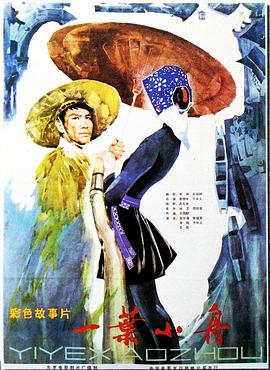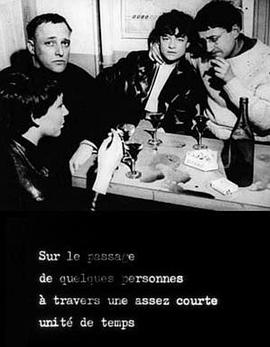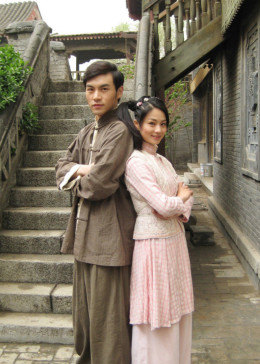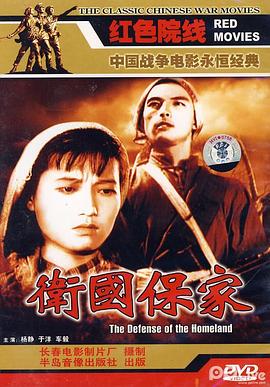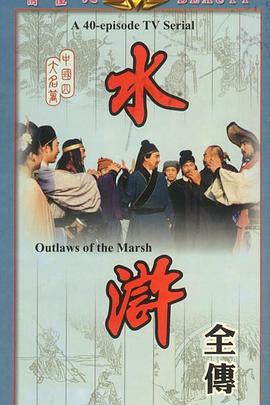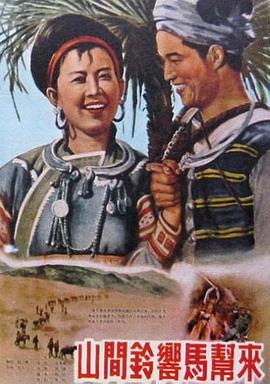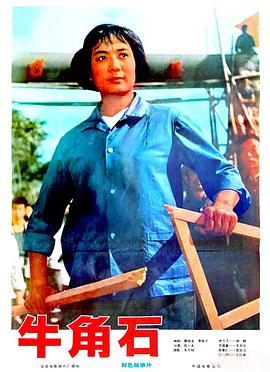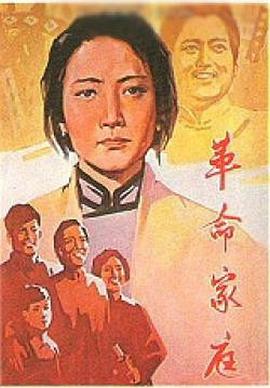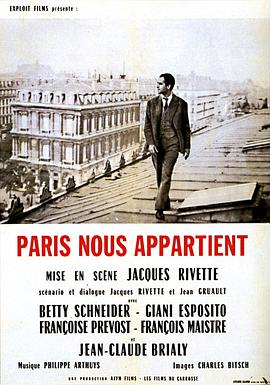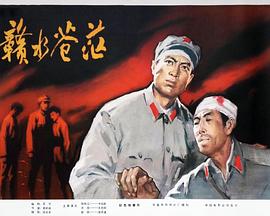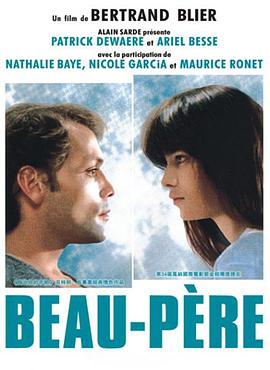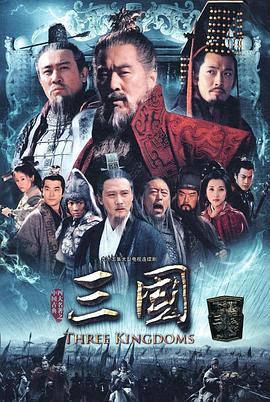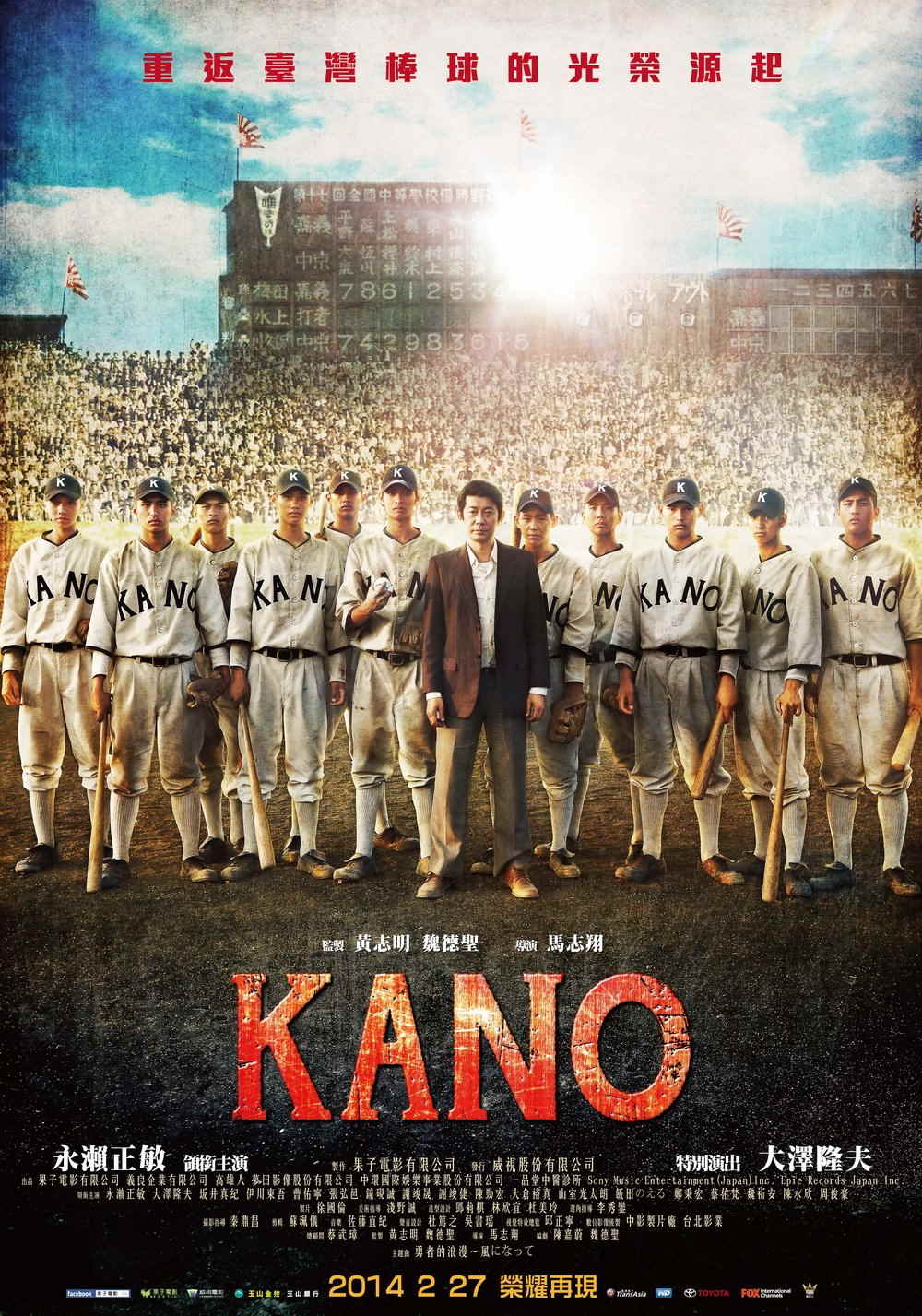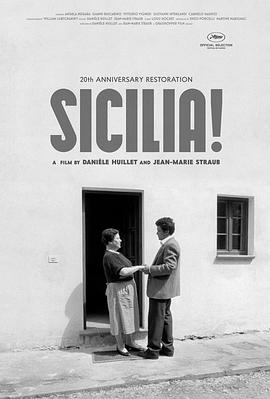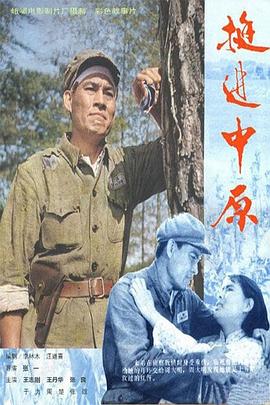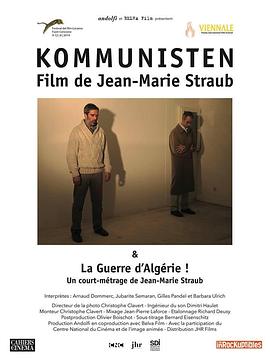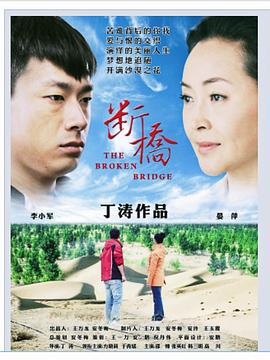于
搜索"于",找到2322部影视作品
导演:
/王好为
剧情:
农村姑娘鲁雪枝远离家乡,投奔到大 兴安岭的姐姐家落户。她经过刻苦学 习,于林业中学毕业后,即开始了伐 木工的生涯。茫茫林海,野兽出没, 伐木劳动十分艰苦。但倔犟的鲁雪枝 却爱上了这里的—切,并被选为青年 突击手。在劳动中,雪枝与纯朴的伐 木工房根柱相爱,但姐夫陆民子却极 力反对,横加阻拦。姐夫想把她嫁给 一个有权势的民政干部,雪枝坚决不 从。从此,雪枝遇到工作不给转正, 结婚不开证明等种种刁难。房根柱母 子为求完婚,试图用钱物向陆民子求 情,遭到拒绝。雪枝忿然搬出姐姐家 ,她对根柱的懦弱十分失望,决心以 死相抗,跳河自尽。幸被林业局团委 书记江有林发现救起。当江有林了解 情况后,去找陆民子评理,却遭到一 些人的嘲弄和非难。陆民子更是满口 胡言,诽谤雪枝,令雪枝无地自容。 姐夫的跋扈和未婚夫的软弱,使雪枝 感到走投无路,决定返回老家。江有 林向她阐述人生的意义, 激励她的 斗志,同时又坚持不懈地为鲁雪枝争 取婚姻自由而四处奔波直至胜利。结 婚前夕,鲁雪枝感到自己与根柱在精 神上存在着距离。她很矛盾,痛苦, 但仍决定以身相许。忠厚的根柱也深 感自己的怯懦,不愿累及雪枝,终于 不告而别,参加了扑灭山火的行列。
导演:
/黄健中,于中义
剧情:
秋天的早晨,何鸣和阿芬这一对勤劳的中年夫妇,载着满筐猪娃,摇着小船向镇上驶去。梁溪镇的早市繁荣而喧闹,玩蛇人颈上的大蟒,说书人口中的"七侠五义",茶楼上演评弹"十美图"的大海报,吸引着镇上的人们,更吸引人的是镇上新盖起的影剧院。老人们感叹地说:想不到梁溪也有了大戏馆。黄昏,阿芬边煎鱼边哼着锡剧,何鸣悠然地拉着二胡伴奏。青年炳昌带来消息,于主任的表弟、文化站的王站长要出任影剧院经理了。阿芬对丈夫说自己对此不感兴趣。何鸣是个曾三次当过支书,又三次下台的干部。不久,公社党委书记周大田决定由何鸣担任影剧院经理,何鸣表示自己不愿再当干部了。周大田做了许多工作,撤销了对何鸣的一切处分。何鸣终于同意担任经理,并与周大田订立了"约法三章"。何鸣上任后,公开张榜招工,许多人送来了礼物。考场上,何鸣用巧妙的办法退掉了所有的礼品,择优招进了职工,引起了于主任等人的强烈不满。市剧团来参加影剧院开幕式时,何鸣在食、宿、交通等问题上遇到了严重的障碍。影剧院开幕之夜,公社干部的家属们拥塞在门前,站在远处的阿芬看到何鸣和周大田订立的"约法三章"并未能真正实行。阿芬要回家了,何鸣也跳上小船,要送妻子一程。小船艰难地穿过布满大小船只的河道,驶向月光碧水的太湖。此刻,周大田站在桥头,眼中噙着泪水,望着这天地间仿佛飘然无羁的一叶小舟,望着这一对甘苦相知的夫妻渐渐远去。
导演:
/居伊·德波
主演:
/内详
剧情:
Voice 1 (male "professional announcer" type): This neighborhood(1) was made for the wretched dignity of the petty bourgeoisie, for respectable occupations and intellectual tourism. The sedentary population of the upper floors was sheltered from the influences of the street. This neighborhood has remained the same. It was the strange setting of our story, where a systematic questioning of all the diversions and works of a society, a total critique of its idea of happiness, was expressed in acts. These people also scorned "subjective profundity". They were interested in nothing but an adequate and concrete expression of themselves. Voice 2 (Debord, monotone): Human beings are not fully conscious of their real life - usually groping in the dark; overwhelmed by the consequences of their acts; at every moment groups and individuals find themselves confronted with results they have not wished. Voice 1: They said that oblivion was their ruling passion. They wanted to reinvent everything each day; to become the masters and possessors of their own lives. Just as one does not judge a man according to the conception he has of himself, one cannot judge such periods of transition according to their own consciousness; on the contrary, one must explain the consciousness through the contradictions of material life, through the conflict between social conditions and the forces of social production. The progress achieved in the domination of nature was not yet matched by a corresponding liberation of everyday life. Youth passed away among the various controls of resignation. Our camera has captured for you a few aspects of a provisional microsociety. The knowledge of empirical facts remains abstract and superficial as long as it is not concretized by its integration into the whole "” which alone permits the supersession of partial and abstract problems so as to arrive at their concrete essence, and implicitly at their meaning. This group was on the margins of the economy. It tended toward a role of pure consumption, and first of all the free consumption of its time. It thus found itself directly engaged in qualitative variations of everyday life but deprived of any means to intervene in them. The group ranged over a very small area. The same times brought them back to the same places. No one went to bed early. Discussion on the meaning of all this continued... Voice 2: "Our life is a journey "” In the winter and the night. "” We seek our passage..."� Voice 1: The abandoned literature nevertheless exerted a delaying action on new affective formulations. Voice 2: There was the fatigue and the cold of the morning in this much-traversed labyrinth, like an enigma that we had to resolve. It was a looking-glass reality through which we had to discover the potential richness of reality. On the bank of the river evening began once again; and caresses; and the importance of a world without importance. Just as the eyes have a blurred vision of many things and can see only one clearly, so the will can strive only incompletely toward diverse objects and can completely love only one at a time. Voice 3 (young girl): No one counted on the future. It would never be possible to be together later, or anywhere else. There would never be a greater freedom. Voice 1: The refusal of time and of growing old automatically limited encounters in this narrow, contingent zone, where what was lacking was felt as irreparable. The extreme precariousness of the means of getting by without working was at the root of this impatience which made excesses necessary and breaks definitive. Voice 2: One never really contests an organization of existence without contesting all of that organization's forms of language. Voice 1: When freedom is practiced in a closed circle, it fades into a dream, becomes a mere representation of itself. The ambiance of play is by nature unstable. At any moment "ordinary life"� can prevail once again. The geographical limitation of play is even more striking than its temporal limitation. Any game takes place within the contours of its spatial domain. Around the neighborhood, around its fleeting and threatened immobility, stretched a half-known city where people met only by chance, losing their way forever. The girls who found their way there, because they were legally under the control of their families until the age of eighteen, were often recaptured by the defenders of that detestable institution. They were generally confined under the guard of those creatures who among all the bad products of a bad society are the most ugly and repugnant: nuns. What usually makes documentaries so easy to understand is the arbitrary limitation of their subject matter. They describe the atomization of social functions and the isolation of their products. One can, in contrast, envisage the entire complexity of a moment which is not resolved into a work, a moment whose movement indissolubly contains facts and values and whose meaning does not yet appear. The subject matter of the documentary would then be this confused totality. Voice 2: The era had arrived at a level of knowledge and technical means that made possible, and increasingly necessary, a direct construction of all aspects of a liberated affective and practical existence. The appearance of these superior means of action, still unused because of the delays in the project of liquidating the commodity economy, had already condemned aesthetic activity, whose ambitions and powers were both outdated. The decay of art and of all the values of former mores had formed our sociological background. The ruling class's monopoly over the instruments we needed to control in order to realize the collective art of our time had excluded us from a cultural production officially devoted to illustrating and repeating the past. An art film on this generation can only be a film on its absence of real creations. Everyone unthinkingly followed the paths learned once and for all, to their work and their home, to their predictable future. For them duty had already become a habit, and habit a duty. They did not see the deficiency of their city. They thought the deficiency of their life was natural. We wanted to break out of this conditioning, in quest of another use of the urban landscape, in quest of new passions. The atmosphere of a few places gave us intimations of the future powers of an architecture it would be necessary to create to be the support and framework for less mediocre games. We could expect nothing of anything we had not ourselves altered. The urban environment proclaimed the orders and tastes of the ruling society just as violently as the newspapers. It is man who makes the unity of the world, but man has extended himself everywhere. People can see nothing around them that is not their own image; everything speaks to them of themselves. Their very landscape is alive. There were obstacles everywhere. There was a cohesion in the obstacles of all types. They maintained the coherent reign of poverty. Everything being connected, it was necessary to change everything by a unitary struggle, or nothing. It was necessary to link up with the masses, but we were surrounded by sleep. Voice 3: The dictatorship of the proletariat is a desperate struggle, bloody and bloodless, violent and peaceful, military and economic, educational and administrative, against the forces and traditions of the old world. Voice 1: In this country it is once again the men of order who have rebelled. They have reinforced their power. They have been able to aggravate the grotesqueness of the ruling conditions according to their will. They have embellished their system with the funereal ceremonies of the past. Voice 2: Years, like a single instant prolonged to this point, come to an end. Voice 1: What was directly lived reappears frozen in the distance, fit into the tastes and illusions of an era, carried away with it. Voice 2: The appearance of events that we have not made, that others have made against us, now obliges us to be aware of the passage of time, its results, the transformation of our own desires into events. What differentiates the past from the present is precisely its out-of-reach objectivity; there is no more should-be; being is so consumed that it has ceased to exist. The details are already lost in the dust of time. Who was afraid of life, afraid of the night, afraid of being taken, afraid of being kept? Voice 3: What should be abolished continues, and we continue to wear away with it. We are engulfed. We are separated. The years pass and we haven't changed anything. Voice 2: Once again morning in the same streets. Once again the fatigue of so many similarly passed nights. It is a walk that has lasted a long time. Voice 1: Really hard to drink more. Voice 2: Of course one might make a film of it. But even if such a film succeeds in being as fundamentally disconnected and unsatisfying as the reality it deals with, it will never be more than a re-creation "” poor and false like this botched traveling shot. Voice 3: There are now people who pride themselves on being authors of films, as others were authors of novels. They are even more backward than the novelists because they are unaware of the decomposition and exhaustion of individual expression in our time, ignorant of the end of the arts of passivity. They are praised for their sincerity since they dramatize, with more personal depth, the conventions of which their life consists. There is talk of the liberation of the cinema. But what does it matter to us if one more art is liberated through which Tom, Dick or Harry can joyously express their slavish sentiments? The only interesting venture is the liberation of everyday life, not only in the perspectives of history but for us and right away. This entails the withering away of alienated forms of communication. The cinema, too, has to be destroyed. Voice 2: In the final analysis, stars are created by the need we have for them, and not by their talent or lack of talent or even by the film industry or advertising. Miserable need, dismal, anonymous life that would like to expand itself to the dimensions of cinema life. The imaginary life on the screen is the product of this real need. The star is the projection of this need. The images of the advertisements during the intermissions are more suited than any others for evoking an intermission of life. To really describe this era it would no doubt be necessary to show many other things. But what would be the point? Better to grasp the totality of what has been done and what remains to be done than to add more ruins to the old world of the spectacle and of memories. 1. This film, which evokes the lettrist experiences at the origin of the situationist movement, opens with shots of the Paris district frequented by the lettrists in the early 1950s.
导演:
/陈敏,王浚洲,刘柳,张新建,刘子云,王汉平
剧情:
北宋末年,皇帝昏庸,奸臣当道。外虏压境,强梁四起。是非颠倒的时代,老百姓们饱受压迫,在此期间,自然有一些不甘压榨的人揭竿而起,愤而反抗。醉酒景阳冈的好汉武松打死老虎,更手刃了杀害兄长的仇人西门庆。鲁莽却仗义的提辖鲁智深打死镇关西,倒拔垂杨柳。忍辱负重的八十万禁军林冲夜奔,逼上梁山再度受辱,奋起杀死白衣秀士王伦。郓城押司黑脸宋江(鲍国安 饰)与托塔天王晁盖暗中通信,怒杀阎婆惜,以及时雨之名挂帅梁山。一百单八将相继云集水泊梁山,扬起了替天行道的大旗…… 本片根据古典四大名著之一的《水浒传》改编,由山东电视台制作拍摄。
导演:
/王为一
剧情:
解放初期的云南苗寨,人们翘首盼望着政府的马帮早点来,他们给边民生活带来极大的方便。张连长(吴漾 饰)接到指示,要他们保护马帮的安全。匪队长毕根(程之 饰)化装成瑶人混入村寨和小店主李三(梁山 饰)接头,把马帮要来的消息转告匪司令(方伯 饰),匪兵们欲抢劫马帮,被边防军击溃。匪徒们又在策划新的阴谋,一天,哈尼寨收到一张匪徒开列的单子,要他们准备粮食送给过路匪军,区委书记(冯奇 饰)和张连长分析这是敌人声东击西的诡计,真正意图是抢劫货物,边防军和民兵们布下口袋阵等敌上钩。经过一场激烈的战斗,他们打败了敌人,救出了被俘的蓝蒡(孙景璐 饰)。各村寨边民欢欣鼓舞,感谢政府派来的马帮......
导演:
/石一夫
剧情:
1960年代初,中国刚从三年自然灾害中挣脱出来,广大农村围绕是否搞“三自一包”展开了一场激烈斗争。牛角石大队支部书记齐兰子(胡静 饰)和贫下中农带头反对,地委干部陈秉仁(常文治 饰),大队支委何一德(王保善 饰)等则极力拥护。何一德谣言惑众,药死齐兰子家的猪。无奈之下,齐兰子给党中央写信反映情况,陈秉仁使用“调虎离山”计,把齐兰子支到张家湾参观,趁机撤掉她的职务。齐兰子将计就计,在张家湾串联群众,把已经推行的“三自一包”翻了过来,并组织群众赶到牛角石,制止包产到户行为,陈秉仁恼羞成怒,对兰子进行人身迫害。关健时刻,县委领导宣布:“三自一包”是错误的......
导演:
/水华
剧情:
1920年代的中国。乡村女子周莲(于兰 饰)和师范学生江梅清(孙道临 饰)喜结连理。此时的中国正处在大革命风暴前夕,新婚伊始,小夫妻情恩意浓,渐渐地周莲对丈夫的行为产生了不理解,她不知道丈夫是北伐军中的共产党人,但大革命失败后,丈夫惨遭反动派杀害。让周莲彻底认清了阶级斗争的残酷性,她决心完成丈夫未竞的事业,于是带着孩子赶赴上海,奉组织要求参加党的地下工作,从苏联回国的大儿子遭特务机关逮捕,但这并没吓到己经觉悟起来的周莲,尽管敌人对她百般利诱,以儿子的生命为代价要挟她,周莲不为所动。最后,儿子献出了年轻的生命。周莲被捕后,依然坚持革命信仰,相信反动统治一定会被推翻......
导演:
/雅克·里维特
剧情:
故事发生在1957年的法国巴黎,安妮(贝蒂·施奈德 Betty Schneider 饰)在哥哥的带领下参加了一个聚会,在聚会上,她邂逅了特里(弗朗索瓦丝·佩武 Françoise Prévost 饰)和戏剧导演杰拉德(贾尼·埃斯波西托 饰),杰拉德正在排演一出莎士比亚的戏剧,剧组遭遇了经济困难,为了帮助杰拉德攻克难关,安妮决定加入剧组。 特里的男友胡安前段时间遭遇了不测,虽然表面看来他是自杀身亡,但特里和安妮都觉得其中必有蹊跷。菲利普(Daniel Crohem 饰)从美国逃亡到法国,他告诫特里和安妮,让她们注意自己的人身安全,不要重蹈胡安的覆辙。在排演的过程中,安妮一直试图寻找着胡安自杀的真相。
导演:
/于洋
剧情:
卡车电影 70年代初期,江城地区汽车运输九队副队长常大进提出开设"支农班车"支援农业,得到上级领导和群众的好评。但曾经和常大进一同在抗美援朝中并肩战斗过的队长赵虎,错误地把支农与完成运输计划对立起来,对"支农班车"采取了冷淡和情疑的态度。九队运输组副组长柴德贵,勾结社会上的贪污盗窃集团,趁山区交通不便之机,大搞地下运输,盗卖国家计划物资。"支农班车"的开设,沉重地打击了他们的盗窃和地下运输活动,柴德贵等人怀恨在心。柴德贵利用常大进到地区计划公司开会的机会,欺骗其侄儿、青年司机柴小闯连夜加班突击,为其偷运木材,使柴小闯由于疲劳过度而在开车时发生了翻车的严重事故,然后又抓住翻车事故大做文章,攻击"支农班车"。在柴德贵的煸动下,本来就对"支农班车"有看法的赵虎,断然下令撤销了"支农班车"。这一决定引起大家的不满。柴德贵又趁机挑拨,妄图把水搅浑。面对发生的这一切,常大进沉着冷静,依靠组织和广大的群众,热情帮助柴小闯,也使赵虎对自己的错误做法有所觉悟。柴德贵等人看一计不成,又生二计。他们趁齐云岭水库受到特大山洪威胁,急需抗洪物资的危急关头,一面纵火烧毁通向齐云岭的公路木桥,以阻止抗洪物资上运,一面又盗走水库备用的防汛木桩,企图造成坝毁人亡的严重后果。不想他们这些活动早被注意,几名坏分子被当场抓住,驾车逃跑的柴德贵也被常大进抓回。满载抗洪物资的车队及时地开上了齐云岭。
导演:
/姜树森
剧情:
1935年,中央红军在王明左倾机会主义的指导下遭到国民党第五次反围剿,他们提倡顽强防守,与敌人硬碰硬拼消耗,从而蒙受了沉重的打击和消耗。某师十八团团长陈战江(李成彬 饰)伤愈重返前线,他星野追赶部队,总算和共同经历了生死考验的政委方亮(王志刚 饰)会面。此时北线局势早已发生变化,临时中央全权特派员进驻十八团,提升政治干事薛民担任团长兼政委。薛民言过其实,好大喜功,完全不顾自身的实力与敌人硬碰硬,却如何能够抵抗住飞机大炮的轰炸。 第五次反围剿失败,中央红军不得已踏上长征之路。陈战江掩埋白白死去的战士的尸体,顶住来自中央的压力,坚决执行毛泽东的战斗路线,和敌人做着最后的斗争……
导演:
/贝特朗·布里叶
剧情:
对于音乐家雷米(帕特里克·迪瓦尔 Patrick Dewaere 饰)来说,日子变得越来越不好过,不仅仅是职业上的停滞不前,妻子一成不变的容颜和乏味的婚姻生活也让他几近抓狂。就在这个节骨眼上,妻子车祸身亡的消息让雷米感到震惊却又有一丝解脱,而妻子留下的14岁的继女玛丽安(阿里尔·贝西 Ariel Besse 饰)也成为了一个包袱。 玛丽安的生父想夺回玛丽安的抚养权,没想到,小小的玛丽安却更愿意和继父生活在一起。同一屋檐下,这对没有血缘关系的“父女”之间的情感变得朦胧而又暧昧。对于玛丽安的火热表白,雷米从最初的果断拒绝到之后的欲拒还迎,他能否守住伦理道德的最后一条底线呢?
导演:
/柯蒂斯·汉森
剧情:
泰利(斯蒂夫·古根伯格 Steve Guttenberg 饰)是一名年轻有为的建筑师,私底下,他一直和老板的妻子西维亚(伊莎贝尔·于佩尔 Isabelle Huppert 饰)有一腿。这一天,泰利约西维亚来自己家中约会,正在两人享尽鱼水之欢时,西维亚发现卧室的后窗对面,一名女子惨遭歹徒强暴。 因为害怕自己和泰利的奸情败露,西维亚不同意报警,可没过多久,西维亚便惨遭杀害。不仅如此,泰利还成为了这起事件的主要嫌疑人。为了替情人报仇,同时也为了替自己洗清冤屈,泰利找到了事件的受害者丹尼斯(伊丽莎白·麦戈文 Elizabeth McGovern 饰),两人决定联手,将真正的凶手捉拿归案。
导演:
/高希希
剧情:
东汉末年,朝纲混乱。内有董卓(吕晓禾 饰)巨奸权倾朝野,专横跋扈;外有黄巾军起义,撼动社稷。时有曹操(陈建斌 饰)韬光养晦,欲为国除害。逃出京城后,曹操与各地诸侯袁绍、刘备(于和伟 饰)、孙坚等二十路豪杰会盟,共同讨伐董卓。几番征战,董卓最终死于义子吕布(何润东 饰)之手。此时大汉气数将近,英雄豪杰皆觊觎天下,因此上演了群雄逐鹿的争霸大戏。关羽(于荣光 饰)、张飞、诸葛亮(陆毅 饰)、周瑜、夏侯渊、陆逊、姜维、司马懿(倪大宏 饰)等风云人物相继入世,魏、蜀、吴三分天下,千古传奇流传至今…… 本片根据中国古典四大名著之一《三国演义》改编。
导演:
/孙沙
剧情:
豆豆(左小青 饰)是一位天真单纯的少女,惨遭村里暴发户土改的强暴,还不幸怀上了他的孩子。豆豆想要为自己讨回一个公道,村长告诉豆豆,如果豆豆不追究土改犯的罪,那么她不仅可以得到两万元的赔偿费,她的兄妹还可以到土改的工厂里工作,这对家庭情况非常困难的豆豆来说是不小的福利。但如果豆豆坚持要告土改,最终导致他被捉拿归案,那么土改的工厂就要倒闭,工厂里几百个工人都将下岗。 豆豆的父亲禁不住金钱的诱惑,想要把事情私了,豆豆的男友也因为这场风波最终选择离开了她。自暴自弃的豆豆决定嫁给一位电影放映员,谁知道这个男人并不是真的爱她,只是贪图她的赔偿金而已。
导演:
/马志翔
剧情:
一群奋战不懈的野球少年们,朝着梦想前进的热血故事!故事描述1929年台湾诞生了一支由汉民族、大和民族和原住民族组成的嘉农棒球队,在新教练以「进军甲子园」为目标,用斯巴达式的严厉态度训练球员,原本散漫的球队在教练一年多的魔鬼训练与屡屡落败的刺激下,渐渐激发了球员的求胜意志与前进甲子园的决心。1931年,嘉农棒球队一路过关斩将,打败由日本人所组的常胜冠军「台北商业队」,成为首支在浊水溪以南并且赢得全岛冠军的野球队外,更代表台湾去日本征战甲子园,在一望无际的甲子园的草地上,五万五千名观众面前,嘉农球员们奋而不懈的决心与永不放弃的精神感动了现场所有观众,不论输赢,嘉农已经缔造了历史,不畏惧地勇敢挑战自我,无形中却得到真正的胜利。远远地,观众席上传来一阵奋力呼喊:「英雄…战场…天下…嘉农」。…
导演:
/达尼埃尔·于伊耶,让-马里·斯特劳布
主演:
剧情:
一如他曾把卡夫卡小說幾乎「抽象」化,也把巴哈女士日記拍得如此地貼近音樂而非文字,Straub的這種風格,除了執拗地延續像MoulletGarrel這些新浪潮好友的「極簡」手法之外,也算是為自己的「藝術」捍衛的極高體現。 看來,我還得回頭去看一下Pedro Costa為「我們時代的電影」系列,為這兩夫妻拍的那一集吧,或許,我才真正能向他們更靠近一些(到底是Costa像他們而找他拍,還是Costa本身確實受到兩夫妻的影響,而得到真髓,所以找來對他們最有研究的創作者來拍呢?這我們就不得而知了)?
导演:
/张一
剧情:
1947年,刘邓大军挺进大别山。为了强渡汝河,我军首长下令炸掉辎重,炮团长(王志刚 饰)违令不炸,被旅长方军(王丹华 饰)撤职。此时敌军长白建业(周楚 饰)已在汝河两岸布兵夹击,经过激战,我军与游击队会师。方军见到分别多年的母亲(苏辉 饰),知晓家中变故。深秋,敌人大面积封山,妄图用经济封锁置我军于死地。次年春,大反攻开始了,方妈意外发现方家坪区长来弟(于力 饰)正是自己多年前被人卖掉的孙女也就是方军的女儿。可情急中,还未相认,来弟就随大军走了。随着战事的推进,白建业深感大势已去,准备逃跑,得知消息的来弟疾速给部队报信,途中遭袭负伤,弥留之际,她拿出一只妈妈牺牲前留给她的耳环......
导演:
/让-马里·斯特劳布
主演:
剧情:
81-year-old master, Jean-Marie Straub, once again invents and surprises with his latest film. Kommunisten consists of six parts, five of which have been taken from his earlier works. Straub does not aim to be self-reverential, but instead wants to make different blocks (of text, time, and languages) clash so as to highlight invisible elements of feelings and politics. It is a film about human adventure, from the past century to the one ahead. In this project, all the things that the films of Jean-Marie Straub and Danièle Huillet have been based on for the past fifty years, find their most raw and recent form.


